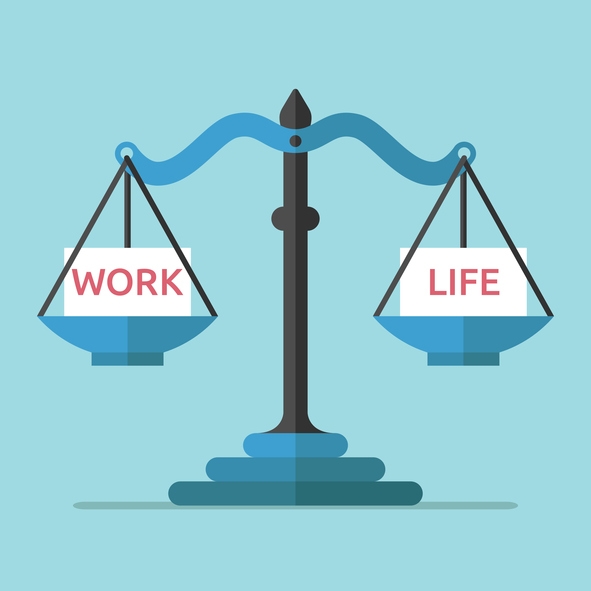You have /5 articles left.
Sign up for a free account or log in.

iStock/Satnenik_Guzhanina
Hiring the right candidate is not easy. While managing a job search several years ago, I thought I had found the perfect fit for our office until the topic of work-life balance came up. When I asked the candidate why they wanted the job, they replied, “My current field is notoriously stressful with lots of hours. I’m looking to relax now; I need some work-life balance.”
My trainees began adding the term “work-life balance” to their lexicon over a decade ago, and it now seems assumed that employers owe employees this perk. From an employer’s point of view, however, the term is ambiguously defined and not so straightforward.
The candidate did not keep their audience in mind when answering the question. To an employer, the given answer lacks an understanding of our sector, because we also work evenings and weekends, we do travel, and we do work hard to meet pressing deadlines. You may believe those in your sector work harder than anyone else, but most people believe they work harder than anyone else. Further, hard work varies from sector to sector. Academic research faculty members may work long hours, for example, but their schedules tend to be more flexible than those of the scientists who work a largely nine-to-five day in biotechnology research.
What is your definition of work-life balance? What is your employer’s? Knowing the difference matters when deciding upon your career of choice in the first place. And interviews expose when you do not.
Job interviews exist to assess alignment between your skills, interests and values and those of the organization. Job fit is not just about you; it is about you and the entire community within that organization. In some cases, fit encompasses you and the entire sector in which you work. Strong interviewees keep that in mind from application to interview, throughout the negotiation process and on the job. Wanting a different type of work experience or culture is valid. Once you know where your needs align with those of your future workplace, craft your interview answers to show that alignment.
The other theme I heard in the story above is that the potential employee anticipated less work. While I do not believe they meant this, such an implication worries employers, regardless of sector. A better answer would reflect the actual type of work they excitedly anticipated or a focus on what relaxation might entail. For example, they might have said, “I need an environment that values quality of work over quantity of work.” Here, the employer’s culture is reflected back positively and the candidate’s brand is “quality.” They might consider driving the point home a bit more with an example that displays their understanding of the sector for which they are interviewing.
Maintaining a collaborative perspective postinterview advances your career. A former trainee, for example, negotiated an intercountry commute, per their definition of work-life balance, wherein they only worked on-site four times a year. In exchange, they only received a raise once every two years. Negotiation, whether on the job or before starting, requires give and take.
When trainees first talk to me about negotiation, however, they approach it like a game: how to get more money, vacation or work-from-home options. They continue to explain why these options matter: “The Bay Area is an expensive place to live.” “I have to support my children and pets.” “More time for yoga keeps me centered.” The problem with that approach is not just that the list above encompasses personal choices but that it also assumes, without discussion, that employers should support those choices.
Knowing your interests and values is a good starting point in negotiation, but want and need are two different concepts to employers. Before approaching the subject of work-life balance with your future or current supervisor, consider their interests. For example, how will working from home help maintain or improve your productivity? If you are taking off in the middle of the day for yoga, will you make up that time? Why should your employer increase your salary -- will doing so make the organization more competitive in their sector, ensuring the best possible candidates?
Happiness at work does come with physical and mental-health benefits, and you will not obtain those unless you ask. Many people do not ask for what they want, which is too bad, because happiness cannot come from work alone. We do have a right to make a case for what we need and want.
But there is simply a savvier way to do so than by dropping a decade-old, ambiguous buzz term. Achieving work-life balance requires defining the term for yourself personally and then openly discussing how that aligns with the needs of your current or future employer. If you are still unhappy, then perhaps it is not the right organization or sector for you.








